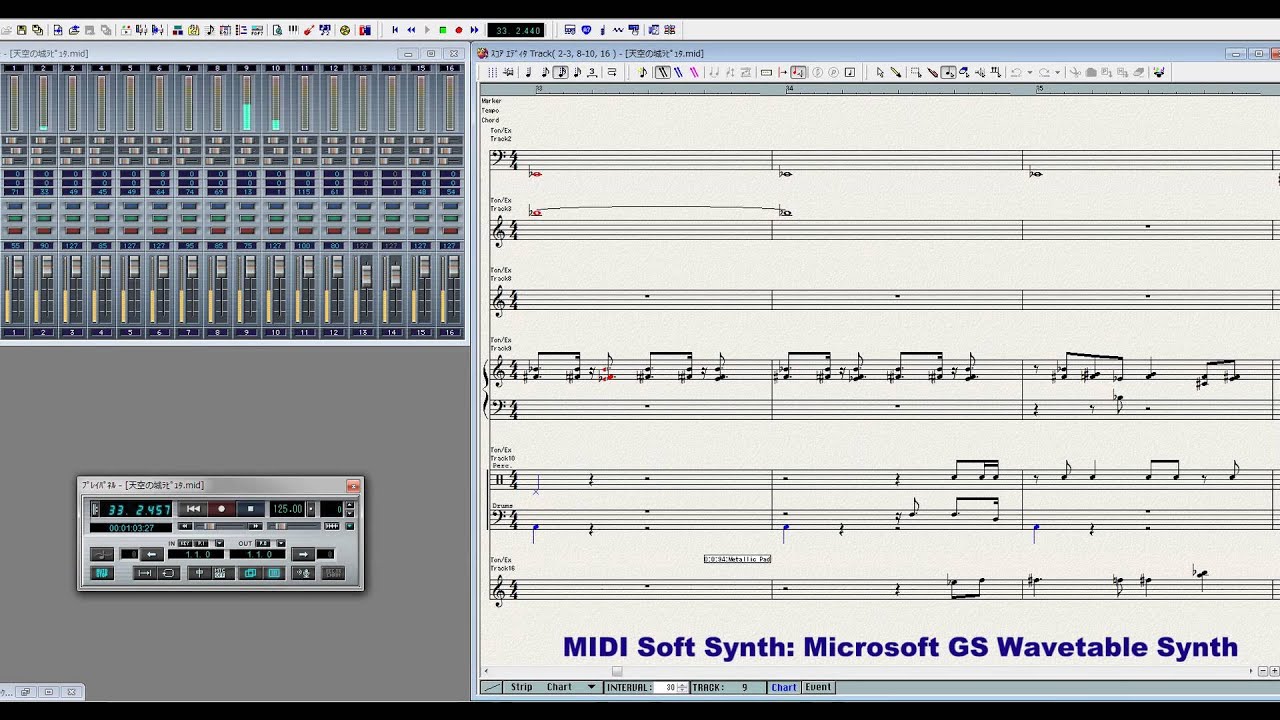
- #Openmtp instruments soundfont drivers
- #Openmtp instruments soundfont plus
- #Openmtp instruments soundfont windows
It can make use of VST 1.x and VST 2.x plugins. MIDI input and output to record from and playback on external MIDI devices. #Openmtp instruments soundfont windows
It can extract instruments and samples from soundfonts, like the General MIDI soundfont that comes pre-installed with Windows (GM.DLS). It can export to a variety of streaming audio formats such as WAV, FLAC and MP3, as well as render individual patterns, channels or instruments. It can open or import a wide range of tracker formats, including backward compatibility with files saved under previous versions of OpenMPT. It has a side panel with expandable directory view to locate relevant files quickly. Ability to customize most actions with keyboard shortcuts, including navigation, input, and opening dialog boxes. Ability to automatically save the current file at intervals - and to a location - of your choosing. Customizable audio playback quality (sample and bit rates), polyphony, and latency settings. Up to 127 channels for pattern data (each with their own volume, pan, and plugin settings, as well as customizable channel names), and separate volume controls for sample playback, instrument plugins, and overall global volume. Optional global DSP effects including an equalizer. Ability to customize the GUI colour (but no skins yet), including colour schemes and custom pattern fonts. It allows for a rich set of options and preferences, including:. The workspace is intuitive and efficient, with a simple Windows-oriented interface, plenty of tooltips everywhere, and separate specific sections of work into tabs. With its flexibility, OpenMPT can appeal to all composers from electronic dance music genres to experimentalists to classical composers. The text-based event editing system is aided by a graphical sample editor and built-in sampler, and note data can be input through the computer’s keyboard or any external MIDI gear. While the text display may look intimidating and old-fashioned compared to the big well-known sequencers at first, it allows for a very fast music composition process for the experienced user. Contrary to many other trackers, OpenMPT makes use of the Windows environment, using the operating system’s native look and feel with sliders and buttons for visual-based input. It comes with a built-in sampler but may also make use of external sound generators, including external MIDI synthesizers and “virtual synthesizers” called VST instruments. Alchemy (Camel Audio was acquired by Apple,Īnd the current incarnation of Alchemy no longer supports SFZ.OpenMPT is a third-generation tracker - a music application with a focus on a mostly textual note representation with a strong keyboard focus. Simple 16 drum pads percussion sampler, 8 layers. Sampler device supports the import of SFZ. Has basic parameter controls, supports only SFZ v1 opcodes. Sample player as standalone or VSTi plugin for Windows 32-bit OS that can load different sounds in different formats. It supports very minimal SFZ v1 opcodes, only for key-range and velocity-range mapping.Īn audio sampling and synthesis Engine based on the SFZ 1.0 / SFZ 2.0 open file formats for instrument programming and the Scala open file format to define scales and temperaments. Synth-based sample player using SFZ format as its sound generator. #Openmtp instruments soundfont plus
Supports almost all SFZ v1 and v2 opcodes, plus ARIA extensions. MIDI input is also supported.Ī free, highly SFZ 2.0 compliant sample player.

SFZ library, AU/LV2/VST3 plugin with JACK support.Įxtension to the BASS audio library, enabling the playing of MIDI files and custom event sequences, using SF2 soundfonts and/or SFZ to provide the sounds. SFZ sampler library with LV2 and JACK support.

#Openmtp instruments soundfont drivers
OpenMPT, sfizz and zerberus (MuseScore <= v3.6.2).Ĭ library and Python module to build audio applications like MIDI sequencers or samplers (SFZ or SF2 via Fluidsynth).įully-featured audio plugin host, with support for many audio drivers and plugin formats. We use “Free and Open Source” (FOSS) as defined by the OSIĪs “software to be freely used, modified, and shared.”īelow are the known links to the various lists of supported opcodes:īassMIDI, Bitwig, Equator 2, HISE, LinuxSampler, liquidsfz, Sforzando currently offers the most complete SFZ standard support, includingĪRIA extensions, but SFZ files which only use the SFZ v1 or SFZ v2 standard

There are several SFZ players, which are used to play samples as defined in SFZ







 0 kommentar(er)
0 kommentar(er)
